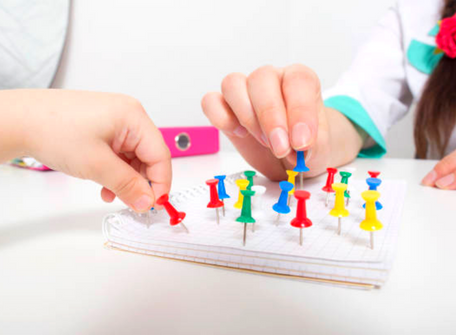Successful development of coordination, bodily movement, and balance skills are key to individuals being capable of actively participating in their personal and professional lives. However, children with impaired psychomotor skills often have difficulty maintaining balance, body coordination, and movement. Psychomotor therapy help children improve their psychomotor skills while improving their self-confidence.
Keep reading to learn more about psychomotor therapy and its benefits!
What is Psychomotor Therapy?
Psychomotor therapy (PMT), also termed “Pesso Boyden system psychomotor,” helps individuals with impaired psychomotor skills.
Psychomotor therapists develop fine and gross motor skills, handwriting skills, coordination movement, and improved balance. In addition, psychomotor therapy also enhances the self-confidence of children and young persons with psychomotor development issues.
In other words, this therapy is based on the holistic view of the human body and, therefore, targets the treatment of several disorders, including genetic, neurological, psychomotor, developmental, and mental.
Psychomotor physical therapy involves no standardized treatment; however, this therapy combines various active exercises, balance exercises, massages, relaxation techniques, and other psychomotor therapy exercises to improve muscular control, respiration, and mind-body interaction.
The primary purpose of this therapy is to improve the balance between the mind and body while optimizing the development of children, allowing them to reach better physical health and mental well-being along with social integration and improved academic performance using various techniques.
Who Needs Psychomotor Therapy
Individuals with psychomotor disorders can benefit from this therapy. There are several perceptual-motor dimensions that affect the individual’s adaptation to the world. Psychomotor therapists help individuals improve those conditions, including
- Developmental delay
- Problems with gross and fine motors skills, maintaining balance, and body coordination
- Problems with handwriting
- Tonic-emotional disorders
- Dyspraxia (developmental disorder- clumsy movements resulting from impaired body movement and coordination)
- Autism spectrum disorders
- Muscle tone disorders
- Poor concentration
- Hyperactivity Disorder or attention deficit (ADHD) impulsivity
- Psychomotor inhibition
- Lack of self-confidence
- Problems with spatial or time perception
- Laterality and directionality problems (laterality not fixed, difficulty dealing with directions)
- Body scheme disorders and others
Benefits of Psychomotor Therapy
Psychomotor therapy is advised for children and young people with difficulty developing bodily movements, sensory skills, and interacting with others. This therapy benefits people with the following challenges:
- Individuals with motor coordination problems, such as an inability to maintain their balance or clumsy walking, can benefit from psychomotor therapy.
- Individuals with difficulty controlling and releasing muscle tone (muscle regulation).
- This therapy also benefits children who have difficulty understanding the concepts of left and right. Psychomotor therapists help children master foot, eye, and hand movements.
- Children with impaired fine motor abilities, such as problems with using scissors, performing crafts or woodwork, building time, and spatial perception.
- Children or young persons who face difficulty grasping pen or pencil or those who have poor handwriting can benefit from sensory psychomotor therapy.
- Problems with gross motor skills, such as difficulties with static coordination, maintaining balance, or dynamic coordination.
- Children having difficulties with verbal and non-verbal communication, such as imitation, joint attention, interaction with peers, expressing emotions, understanding mimics, and facial expressions can also benefit from psychomotor therapy.
- Psychomotor therapy also assists in improving sensory modulation, including tactile, auditory, visual, vestibular, taste, olfactory, and proprioceptive.
- Psychomotor therapy for trauma also helps improve certain behavioral problems such as aggression, restlessness, impulsive behavior, and attentiveness disorders.
- Psychomotor therapy autism also helps children with psychomotor difficulties.
Here, it is to understand that each intervention plan differs considering the specific psychomotor development needs of the children. No one protocol, technique, or therapy can be applied to everyone. Therefore, psychomotor therapists employ creative, purposeful, and fun activities (both spontaneous and directive) to improve the psychomotor development skills of the children.
If you are looking for “psychomotor therapy near me,” visit Hope Abilitation Medical Center. Our therapists provide tailored treatment plans for children with psychomotor difficulties.


